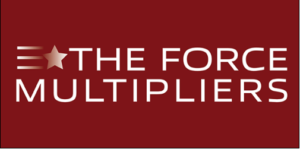In this monthly column, Defense Daily highlights individuals from across the government, industry and academia whose efforts contribute daily to national defense, from the program managers to the human resource leaders, to the engineers and logistics officers.
Crystal Peck is the senior director for human resources at L3Harris Technologies’ space and airborne systems business segment
How did you get involved in the defense industry or community?
I grew up in Connecticut where Sikorsky Aircraft is headquartered. Growing up in that area of Connecticut, I think it’s safe to say that many of us had a relative, friend, neighbor or acquaintance who worked at the company. The employee pride in the company mission is embedded in that community. After being in the workforce for a year, I had a very strong interest in moving into an HR generalist career path.
Once the opportunity presented itself for me to grow my career as an HR generalist at Sikorsky, I happily accepted. That role was not only the start to the path that led to where I am today, but also the start to my passion for this industry and the incredible work done by so many across this industry every single day. This passion for the industry drew me to progress my career at now L3Harris and our mission to address critical customer challenges across air, land, sea, space and cyber domains.
What are some challenges you faced working through your career?
I’ve faced many challenges in my career. One of the biggest challenges early on was having the opportunity to create a program management rotation program from concept to launch to address a gap in the program management talent pipeline. The goal was to take the critical knowledge and experiences that make a strong program manager in our industry over the course of time and accelerate the timeline into a 24-month rotation. Over the course of several months, the program was created, vetted and launched with a diverse first cohort of incredible talent. I might also add that I did this all while completing my masters full-time and being a full-time HR business partner. While very challenging, it was also incredibly rewarding!
Did you feel like you always had sufficient mentors and leaders to help guide you? Why/why not?
I am fortunate to say that I have always had mentors and leaders who were willing to help guide me, in and out of industry—starting with my time as an INROADS intern. INROADS taught me the value of networking, developing strong mentorship relationships early on and gaining champions throughout my career.
How do you work to be a mentor yourself to younger counterparts?
I model the great mentors in my life. I make myself available to build those mentorship relationships. I’m open and honest about my experiences and with advice. INROADS was such an integral part of my career foundation that I often pull on my learning during that time to ensure that I am paying it forward to our next group of leaders entering the workforce. I am particularly excited about L3Harris’ recent announcement that we will be investing $2 million to advance the INROADS’ College Links program. I look forward to our continued partnership and the ability to pay it forward by mentoring the next generation of leaders.
What does it mean to be successful in your career field?
I recently read an article that talked about the leadership qualities that separate the best HR leaders from the rest, and a lot of it resonated with me. I am also answering this question as a leader in the middle of a pandemic. To be a successful HR leader today and for the future, you certainly must build that functional expertise through a variety or experiences, build positive relationships, develop and coach others, and know how to be a strategic partner to the business. It’s also clear, now more than ever, that you have to be both strategic and detail oriented, and very agile, all while also connecting to the outside world.
How has the culture changed around diversity within your career?
I have seen a true shift from programmatic D&I, where the focus is largely on programs and policies that support D&I, to leader-owned D&I and a true push for an overall inclusive culture.
What is your advice for new entrants to the defense/military community?
There are so many people who have walked this road before you, whether it’s in the public or private sectors or both. Find them, learn from them and take the time to figure out how you want to chart your own course.
What do you see as the future of your sector in national defense?
I’m very excited about the future because technology is becoming more valuable and important to our customers’ mission every day. The planes, ships and other platforms our customers rely on are becoming more interconnected and reliant on advanced electronics to perform critical functions. That’s our sweet spot and we’re investing heavily in developing new-to-the-world solutions that will help the U.S. sustain its technological leadership across air, land, sea, space and cyber domains. That’s our single mission and I’m proud to be a part of it.
Who are the Force Multipliers in your community? Let us know at [email protected].
